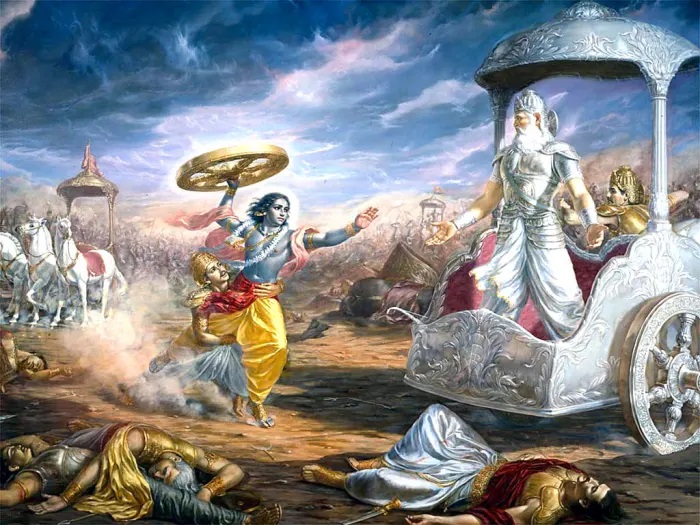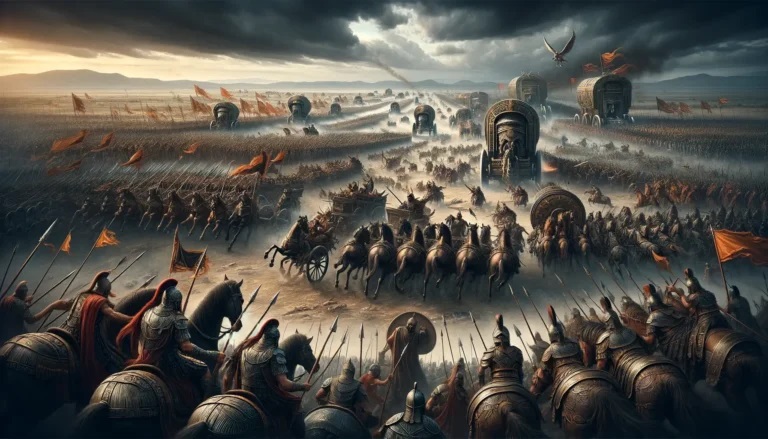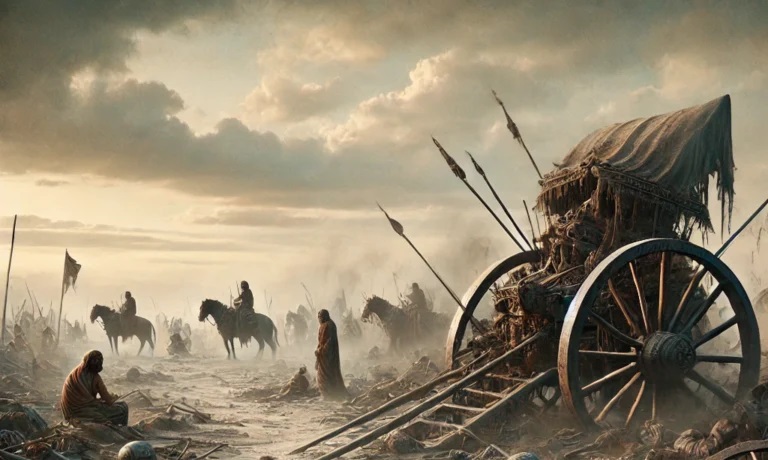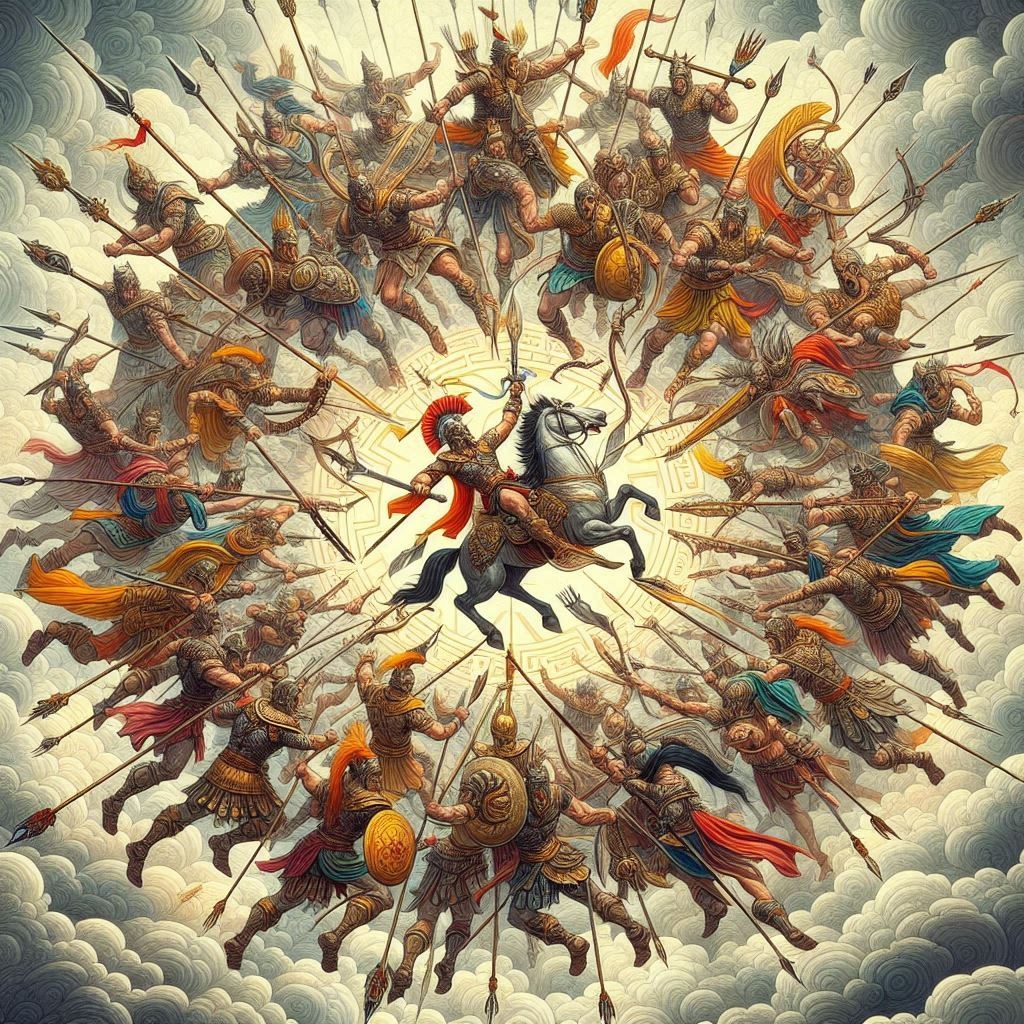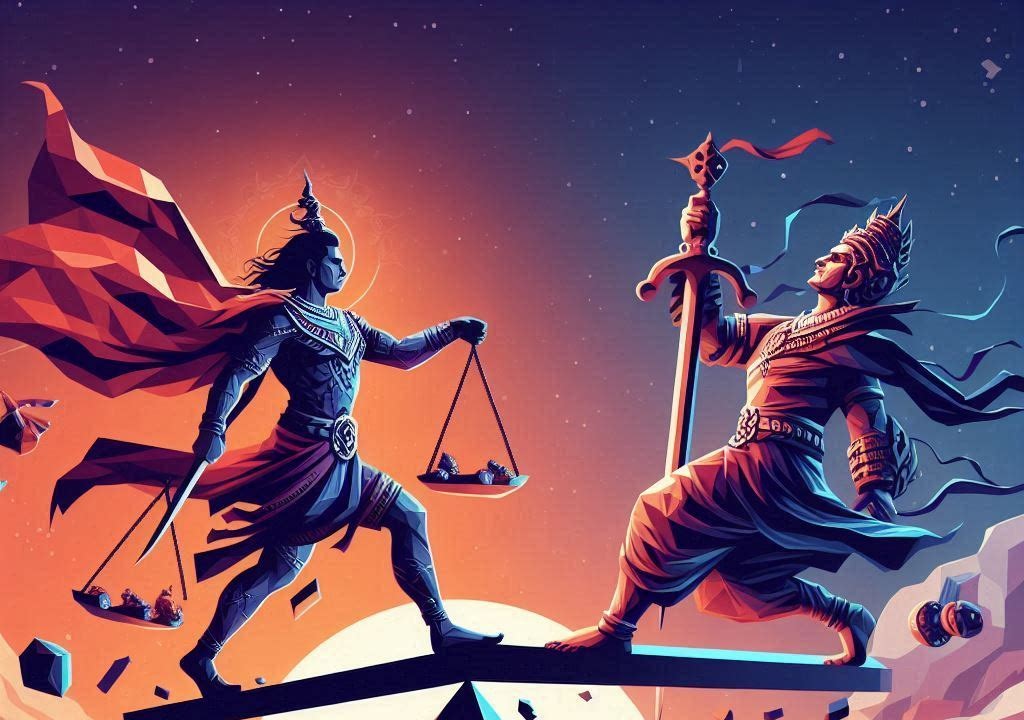The ninth day of the Kurukshetra war was a stark testament to the complex interplay of skill, duty, and destiny. Bhishma, the grand old warrior, stood as an immovable force, his prowess honed over decades of battle. His attacks, imbued with the weight of divine blessings, rained down upon the Pandava army with relentless fury. Arjuna, the divine archer, found himself in a crucible of adversity, his skill and courage tested to their limits. The shattering of his chariot, a symbol of his vulnerability, underscored the gravity of the situation.
Krishna, the divine charioteer and counselor, witnessed the unfolding tragedy with a mix of concern and resolve. His protective instincts, honed by a lifetime of devotion to the Pandavas, drove him to the brink of breaking his vow of non-interference. The image of Arjuna, his friend and protégé, struggling against overwhelming odds ignited a spark of righteous anger within him. His hand extended towards the chariot wheel, a weapon of immense power, but a moment of reflection and respect for Arjuna’s determination stayed his hand.
In a poignant interlude amidst the chaos of battle, Krishna seized the opportunity to appeal to Bhishma’s conscience. His words were a gentle reproach, a reminder of the warrior’s sworn duty to protect Hastinapur and its rightful rulers. The Pandavas, he argued, were the embodiment of justice and righteousness, their claim to the throne undeniable. Bhishma’s continued allegiance to the Kauravas, a dynasty steeped in deceit and cruelty, was a stark contradiction to the principles he had vowed to uphold.
However, Bhishma’s resolve remained unwavering. His loyalty to the Kauravas, a bond forged in the crucible of shared experiences, superseded his understanding of dharma. His response to Krishna’s plea was a continuation of his relentless assault, a testament to the depth of his commitment. The battlefield became a canvas upon which the tragic beauty of war was painted in hues of blood and sorrow. The Pandavas, their courage tested to the breaking point, fought on, their spirits buoyed by hope and fueled by despair.
The ninth day of the Kurukshetra war was a turning point, not in terms of territorial gains or strategic victories, but in the realm of morality and destiny. It was a day when the lines between right and wrong blurred, when the weight of duty clashed with the demands of loyalty. The stage was set for a climactic confrontation, a battle that would determine the fate of the Kuru kingdom and the course of history itself.

